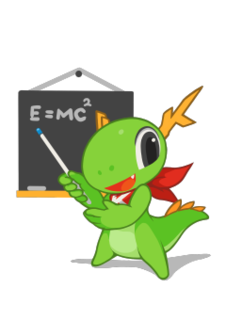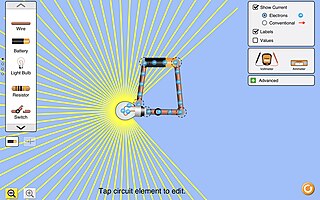
Tutoring is private academic support, usually provided by an expert teacher; someone with deep knowledge or defined expertise in a particular subject or set of subjects.
Pair or PAIR or Pairing may refer to:
Funding is the act of providing resources to finance a need, program, or project. While this is usually in the form of money, it can also take the form of effort or time from an organization or company. Generally, this word is used when a firm uses its internal reserves to satisfy its necessity for cash, while the term financing is used when the firm acquires capital from external sources.
Canada Research Chair (CRC) is a title given to certain Canadian university research professors by the Canada Research Chairs Program.
M-learning or mobile learning is "learning across multiple contexts, through social and content interactions, using personal electronic devices". A form of distance education, m-learners use mobile device educational technology at their convenient time.
An intelligent tutoring system (ITS) is a computer system that aims to provide immediate and customized instruction or feedback to learners, usually without requiring intervention from a human teacher. ITSs have the common goal of enabling learning in a meaningful and effective manner by using a variety of computing technologies. There are many examples of ITSs being used in both formal education and professional settings in which they have demonstrated their capabilities and limitations. There is a close relationship between intelligent tutoring, cognitive learning theories and design; and there is ongoing research to improve the effectiveness of ITS. An ITS typically aims to replicate the demonstrated benefits of one-to-one, personalized tutoring, in contexts where students would otherwise have access to one-to-many instruction from a single teacher, or no teacher at all. ITSs are often designed with the goal of providing access to high quality education to each and every student.
Peer mentoring is a form of mentorship that usually takes place between a person who has lived through a specific experience and a person who is new to that experience. An example would be an experienced student being a peer mentor to a new student, the peer mentee, in a particular subject, or in a new school. Peer mentors are also used for health and lifestyle changes. For example, clients, or patients, with support from peers, may have one-on-one sessions that meet regularly to help them recover or rehabilitate. Peer mentoring provides individuals who have suffered from a specific life experience the chance to learn from those who have recovered, or rehabilitated, following such an experience. Peer mentors provide education, recreation and support opportunities to individuals. The peer mentor may challenge the mentee with new ideas, and encourage the mentee to move beyond the things that are most comfortable. Most peer mentors are picked for their sensibility, confidence, social skills and reliability.
Fontys University of Applied Sciences is a Dutch university of applied sciences with over 44,000 students in several campuses located in the southern Netherlands. The three largest Fontys campuses are located in the cities of Eindhoven, Tilburg and Venlo. The name Fontys comes from the Latin word "fons" which means "source". Thus, Fontys wants to highlight that it is a source of knowledge for students. Fontys offers 200 bachelor's and master's study programmes in the fields of economics, technology, health care, social work, sports and teacher training. A selection of these programmes is offered in German and English. The independent Dutch ranking Keuzegids ranks Fontys as one of the best large universities of applied sciences in the Netherlands. In 2014, former Fontys Chairperson Nienke Meijer was declared "Most influential Woman of the Netherlands".

The KDE Education Project develops free educational software based on the KDE technologies for students and parents. These educational software is translated into more than 65 languages, so that users can access them without any problems. The KDE-Edu project also provides free software educational to support and facilitate teachers in planning lessons.
Online tutoring is the process of tutoring in an online, virtual, or networked, environment, in which teachers and learners participate from separate physical locations. Aside from space, literature also states that participants can be separated by time.
Peer assessment, or self-assessment, is a process whereby students or their peers grade assignments or tests based on a teacher’s benchmarks. The practice is employed to save teachers time and improve students' understanding of course materials as well as improve their metacognitive skills. Rubrics are often used in conjunction with Self- and Peer-Assessment.
Mobile computer-supported collaborative learning may have different meanings depending on the context in which it is applied. Mobile CSCL includes any in-class and out-of-class use of handheld mobile devices such as cell phones, smart phones, and personal digital assistants (PDAs) to enable collaborative learning.
One of the most visible approaches to peer learning comes out of cognitive psychology, and is applied within a "mainstream" educational framework: "Peer learning is an educational practice in which students interact with other students to attain educational goals." Other authors including David Boud describe peer learning as a way of moving beyond independent to interdependent or mutual learning among peers. In this context, it can be compared to the practices that go by the name cooperative learning. However, other contemporary views on peer learning relax the constraints, and position "peer-to-peer learning" as a mode of "learning for everyone, by everyone, about almost anything." Whether it takes place in a formal or informal learning context, in small groups or online, peer learning manifests aspects of self-organization that are mostly absent from pedagogical models of teaching and learning.

PhET Interactive Simulations, a project at the University of Colorado Boulder, is a non-profit open educational resource project that creates and hosts explorable explanations. It was founded in 2002 by Nobel Laureate Carl Wieman. PhET began with Wieman's vision to improve the way science is taught and learned. Their stated mission is "To advance science and math literacy and education worldwide through free interactive simulations."
Classwide Peer Tutoring (CWPT) is a variation of peer-mediated instruction that has been used in elementary, middle school, and high school classrooms. In CWPT students form pairs and take turns in the roles of tutor and student. Students earn points for their teams by participating in the tutoring and the winning team is recognized. Researchers have investigated CWPT's effectiveness in several different academic areas.

Brainly is a Polish education technology company based in Kraków, Poland, with headquarters in New York City. It provides a peer-to-peer learning platform for students, parents, and teachers to ask and answer homework questions. The platform has elements of gamification in the form of points and ranks. It encourages users to engage in the online community by answering other users’ questions. As of November 2020, Brainly reported having 350 million monthly users, making it the world's most popular education app.
Dual-member proportional representation (DMP), also known as dual-member mixed proportional, is an electoral system designed to produce proportional election results across a region by electing two representatives in each of the region’s districts. The first seat in every district is awarded to the candidate who receives the most votes, similar to first-past-the-post voting (FPTP). The second seat is awarded to one of the remaining district candidates so that proportionality is achieved across the region, using a calculation that aims to award parties their seats in the districts where they had their strongest performances.
Snapask is a Hong Kong-based online learning website that offers tutoring services to the students based in Hong Kong, Singapore, Thailand, Korea, Indonesia, Japan, Malaysia and Taiwan. Students could ask questions and tutors would answer them.
Various experiments have been made to evaluate various procedures for fair division, the problem of dividing resources among several people. These include case studies, computerized simulations, and lab experiments.
The Marriage Pact is an unofficial yearly matching activity that takes place on American college campuses, by which students fill out compatibility surveys in order to find a partner among fellow participants, who they agree will be their backup "safety" spouse in the future in case they are then unmarried.



